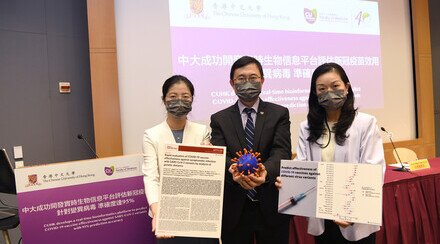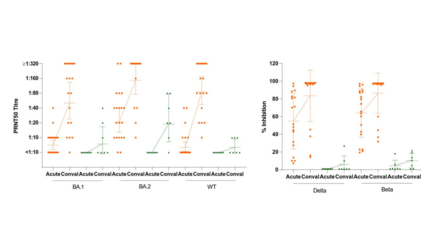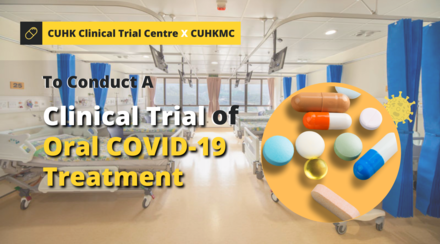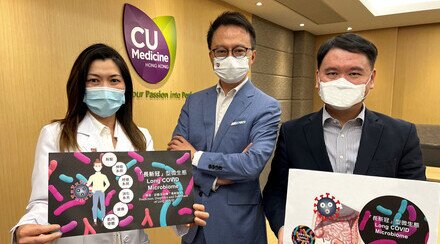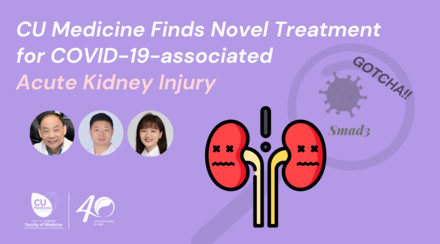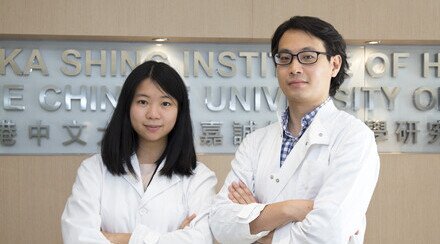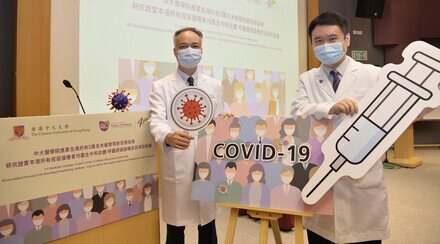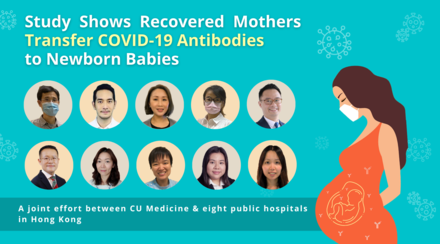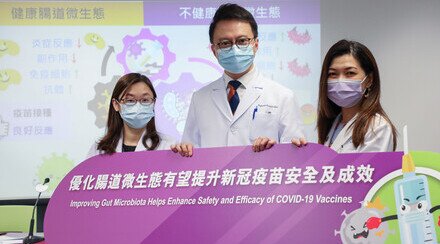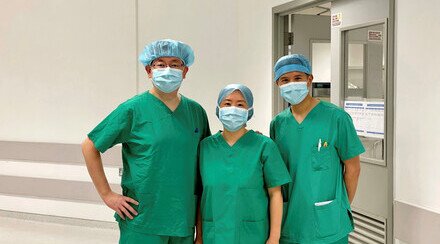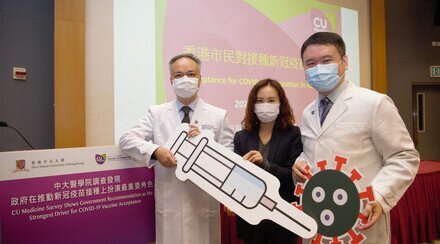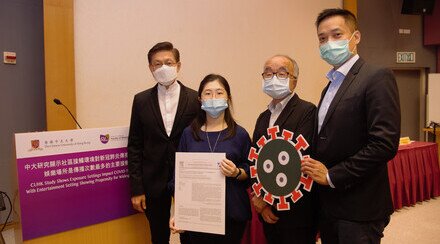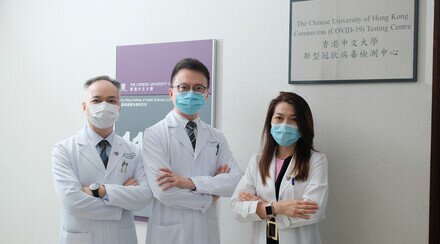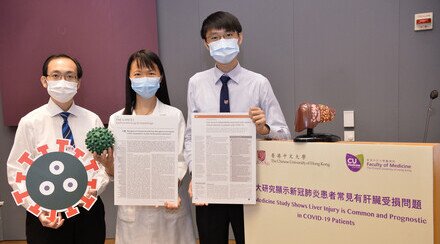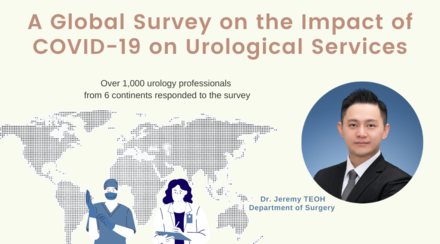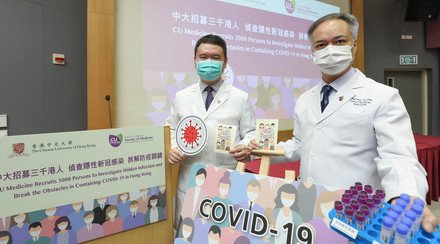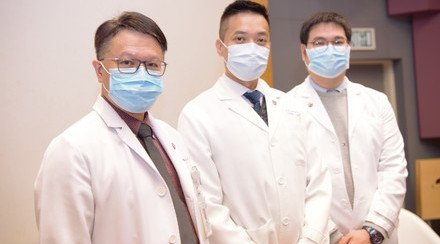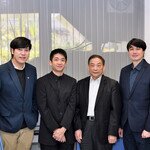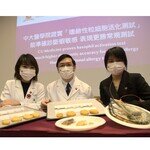Assessment of Omicron outbreak in Hong Kong after reimplementation of some of the toughest social distancing measures effective from 7 January
Research background
During the past Christmas and New Year holidays, Omicron, the variant of SARS-CoV-2, has been establishing a series of transmission chains in the Hong Kong community. Current data reveals that Omicron has a higher transmissibility than the original strain or other variants, and the neutralising ability of the vaccine against Omicron is also lower than that against the original strain. The Omicron epidemic is looming, and the situation is worrying. In the light of this, the research team led by JC School of Public Health and Primary Care, at The Chinese University of Hong Kong’s (CUHK) Faculty of Medicine (CU Medicine), and the Jockey Club College of Veterinary Medicine and Life Sciences, City University of Hong Kong are using a mathematical modelling approach to assess the possible risks of Omicron outbreaks in a majority vaccinated population in Hong Kong.
Research methods and results
With reference to the mobility trends data from Apple and an online community survey conducted by JC School of Public Health and Primary Care, CUHK, the social mobility level of Hong Kong citizens in the past two weeks (23 December to 5 January) has returned to the pre-pandemic level and the mean daily number of social contact encounters was 34.
This study employs an age stratified mathematical model using social mobility levels as proxy estimate of social contact, taking into account: (i) the age-specific susceptibility to COVID-19 infection, (ii) the effectiveness of the two COVID-19 vaccines in Hong Kong, (iii) the mobility data during the pandemic period, (iv) the social contact data in the community during the pre-COVID period, to simulate the number of infections that may be caused by the potential fifth epidemic wave under different interventions.
Assuming (i) 65% of the population being vaccinated with at least one dose of the vaccine, (ii) the vaccine effectiveness against infection as 50% (Sinovac) and 70% (BioNTech), (iii) the basic reproduction number (R0) of Omicron as 8 (when the entire population is susceptible, not vaccinated, or there is no exercising of social distancing measures) and (iv) antibody waning across time, (v) contact tracing efficacy similar to that in the fourth wave, and (vi) the severity rate of Omicron being half of that of Delta, the research team forecasts the upcoming epidemic based on these two scenarios:
- If the social contact level remained at the same level as during the Christmas and New Year holidays in the past two weeks, the fifth epidemic wave triggered by Omicron would lead to more than 3 million infections, and more than 170 thousand severe cases.
- If the tightened social distancing measures effective from 7 January would:
- decrease the social mobility by 25% (daily number of social encounters =14), then the fifth epidemic wave would cause about 250 thousand infections and about 15 thousand severe cases;
- decrease the social mobility by 40% (daily number of social encounters = 11), then the fifth epidemic wave would cause about 12.5 thousand infected cases and about 700 severe cases;
- decrease the social mobility down to the trough in the pandemic (between July-August 2020, during the third epidemic, i.e., the social mobility decreases by 55% which corresponds to daily number of social encounters = 8) then the fifth epidemic wave would cause about 1,100 infections and about 50 severe cases.
Implications
The research team offers the following SEVEN recommendations against the upcoming epidemic:
- The government is recommended to observe the ongoing epidemic in the next two weeks to examine whether the transmission chain is broken after the revised social distancing measures effective from 7th January and investigate whether further tightening of social distancing measures should be adopted to reduce the current social interaction level to the lowest during the third wave of the epidemic.
- The government is recommended to reinforce the promotion of vaccination and resolution of vaccine hesitation for high-risk groups (e.g., elderly in residential care homes, people with weakened immunity), expand eligible vaccination groups (e.g., expanding the eligible age for vaccination), and thereby push up the vaccination ratio.
- Citizens are encouraged to be vaccinated with the third dose to increase the community protection against Omicron.
- The government is recommended to closely monitor the contract tracing efficiency to reduce the potential delay from infection to isolation.
- In addition to the 500 beds currently provided at the Asia-Expo, the government is recommended to reserve resources for the construction of additional temporary bed makeshift COVID treatment centres when necessary for a potentially large number of infections.
- The government is recommended to assess very carefully the quarantine centre capacity during the ongoing epidemic.
- Citizens are recommended to continue to comply with the control measures, to put on masks, wash hands frequently, avoid going into crowds and maintain social distancing.
Research team
JC School of Public Health and Primary Care, Faculty of Medicine, The Chinese University of Hong Kong:
- Kin On Kwok, Assistant Professor
- Samuel Yeung Shan Wong, Director
- Vivian Wei, Research Associate
Jockey Club College of Veterinary Medicine and Life Sciences, City University of Hong Kong
- Hsiang-Yu Yuan, Assistant Professor
- Jingbo Liang, PhD candidate
Department of Social and Behavioural Sciences, City University of Hong Kong
- Kin Kit Li, Associate Professor
Sungkyunkwan University
- Arthur Tang, Assistant Professor
Imperial College London, Faculty of Medicine, School of Public Health
- Steven Riley, Professor


